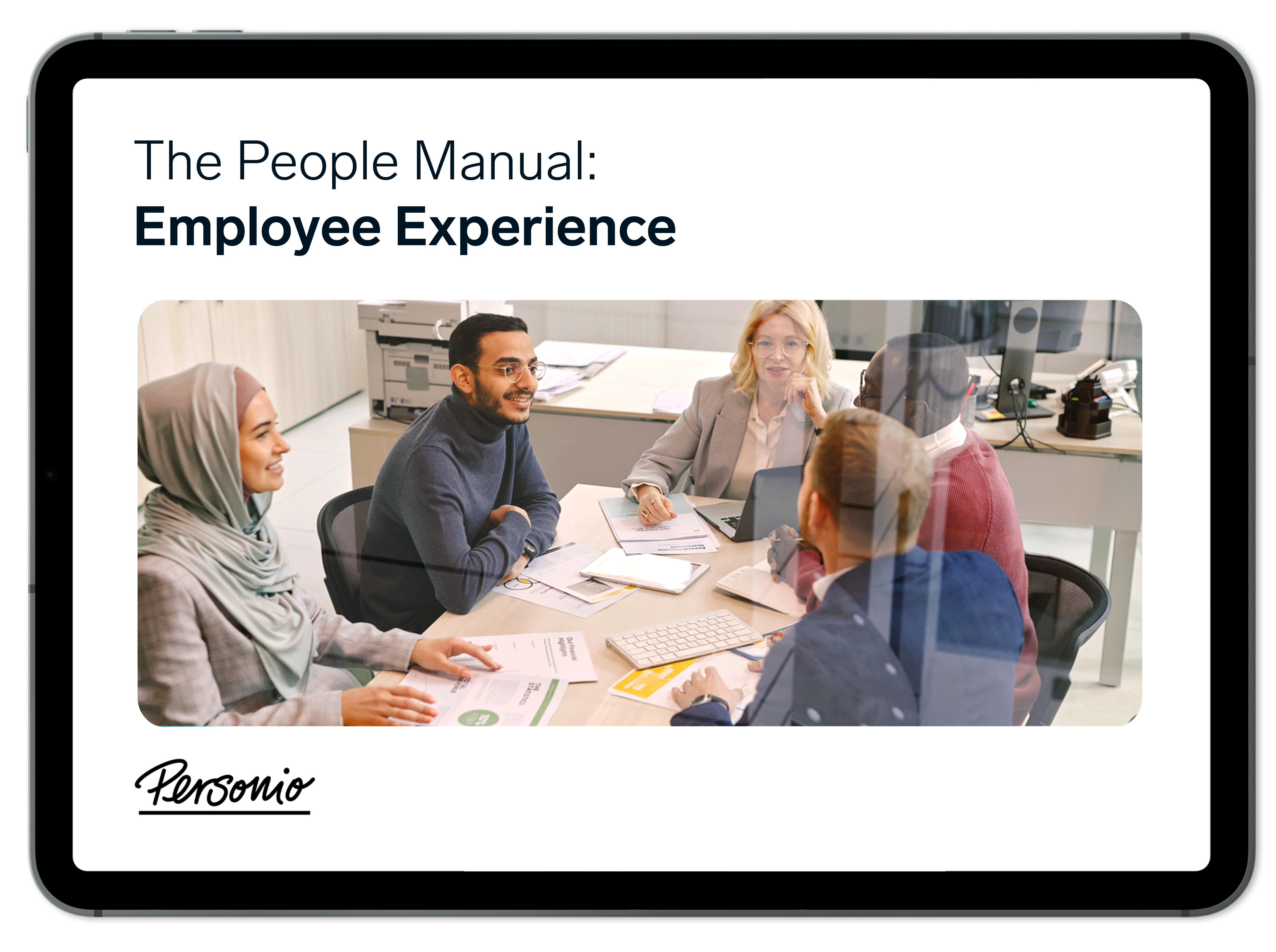Prepare Managers for Employee Conflict Management This Way

Often, when supervisors seek a meeting with an employee, it is because something has gone wrong. The supervisor thinks that performance is inadequate, has heard negative feedback from colleagues, or wants a different approach to be taken in a specific matter. Critiquing, or discussing any kind of conflict requires sensitivity, tact and professionalism.
HR can and should prepare managers appropriately and raise their awareness of conflict management techniques. Why? For the fundamental reason of strengthening rather than straining relationships, and to meet the core responsibility of any HR work: constructive mediation between the two worlds of management and staff. Read on to find out how to do this.
Ready to focus on every element of employee experience? Download our guide.Keep Communicating
First of all: If supervisors and employees have regular meetings, if they also engage in informal exchanges, for example over shared lunches or coffee breaks, conflict management, including discussions about underperformance, are not that big a deal.
We all know this from partnerships: If you communicate openly, honestly and regularly, you can bring up criticism without worrying about it.
But this requires supervisors to have a genuine interest in their employees, meaning that they appreciate employees on a personal as well as professional level. Ideally, supervisors are committed to seeing their employees grow in line with their competences and aptitudes instead of merely delivering solid results. Then, critical feedback presents an opportunity to improve.
The second important point is that emotions should be kept out of any conflict resolution meetings. Empathy, however, is a plus, and this is where HR comes into play. HR is, in fact, often where management outsources its empathy, if only because HR takes a true interest in employees. Sadly, sometimes more so than team leaders.
When Is the Time for a Conflict Management Meeting?
Find out in advance what the reason for the meeting is. This clarifies the scope of the conflict or problem and lets you know whether the reason is a one-off or recurring event, which will have an impact on the evaluation. Possible reasons for conflict resolution meetings can be:
The employee did not perform to the company's satisfaction in a specific situation.
Colleagues have complained about the employee.
Customers have complained about the employee.
External service providers or partners have complained about the employee.
The employee’s performance or results do not meet expectations.
The employee’s conduct has not been correct/appropriate/fair.
The employee seems to have been absent-minded for some time and has not been performing fully.
Half a decade of insights on employee experience

Our "People Manual" covers all things related to employee experience and developing initiatives that result in more engaged employees. Grab your free copy right now.
Download It TodayExample: An Employee Will Miss Out on a Promotion
First, be clear in your mind about what you want to say and what you DON’T want to say. It’s a good idea to write down a few key points and speak your thoughts aloud a few times. After all, sharing negative feedback creates a stressful situation, meaning that you will be likely to forget things, lose focus or be distracted by the emotions of the person you are dealing with. Rehearsing beforehand will help you stay cool, calm and collected.
Don’t put the meeting off for too long. Otherwise the employee concerned may find out through the grapevine, via social media or other informal channels, which could strain your relationship and erode trust.
Provide Context
Provide the employee with more rather than less background information. Explain the reasons for your decisions thoroughly and discuss them in context. Sometimes, decisions may be forced by external factors which you are aware of, but your employee might not know about.
Don’t assume that your employee has all the facts at their fingertips. Ask them whether they have any questions, and actively seek their feedback during the meeting. Aim to engage in a dialogue instead of giving a solo presentation. This helps ensure that your employee feels treated fairly.
Empathy
Show empathy and respond to your employee. Explain what sort of conduct results in which consequences, always making sure you critique what people do or don’t do, not who they are. Avoid empty phrases, such as ‘I would have expected more’, and discuss specific points instead.
Criticism is only constructive if you are able to express it in the form of requests: Your employee will benefit, because they understand what they should be doing differently, and you will too, because you can trust that your employee knows where they are at and what they need to do.
Follow-up
Give your employee time to process the meeting, and then meet again for follow-up. They might have said at the time that they understood and knew how to move forward, but this does not necessarily mean much. After the meeting, they might respond by withdrawing or losing motivation.
Schedule another meeting a week or two later and ask your employee whether they have any questions, whether there is anything they are unclear about, or whether they want to share anything. Be sure to ask them what they expect from you or would like you to do. This is another opportunity for a dialogue that will help build trust.
Guidelines: Helpful Hints for Preparing and Following Up on Conflict Resolution
Before a manager enters into any conflict management process with their employees, they should be clear about what sort of outcome they would like to see. That’s the first step. Next, the manager needs to know how to achieve the desired outcome, keeping in mind that conflict resolution usually involves emotions.
Unless proper conflict management techniques are applied, this can result in people simply letting off steam but not committing to sustained change – an outcome that is frustrating for all involved. HR can prepare managers and thus help prevent negative outcomes.

